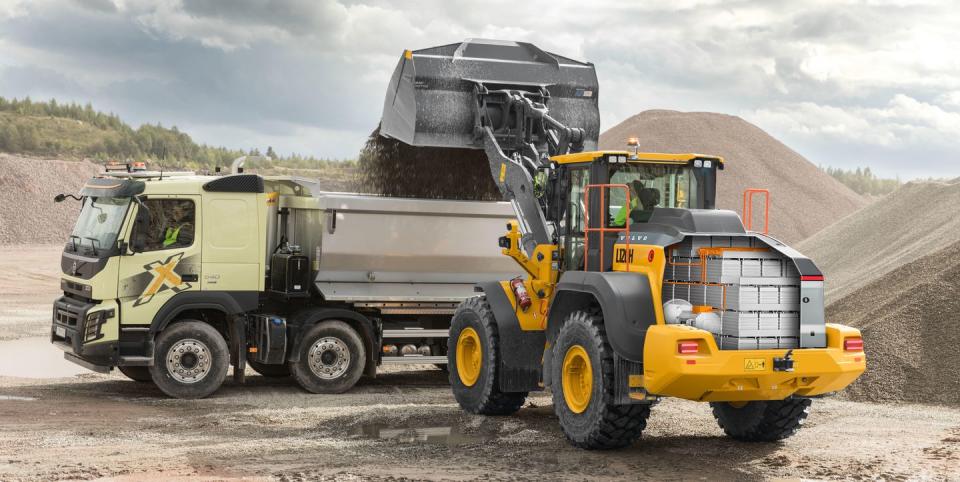Are EV Conversions the Answer for These Types of Vehicles?

Volvo Construction Equipment introduces EV conversion program for the diesel 20-ton L120 wheel loader in Europe, slated to be offered to some commercial customers later this year.
The wheel loader, once equipped with a 240-kWh battery, has a runtime of about five hours, but can be recharged in as little as an hour and a half.
The construction equipment maker is also experimenting with hydrogen fuel cells for its heavy trucks, having been operating a hydrogen prototype at its test facility since 2022.
As automakers turn their attention to electric cars and trucks, with battery-electric models gaining market share with each passing year, the same revolution is happening in the world of commercial vehicles with a number of truck makers rolling out electric models in the past two years. This goes for smaller delivery vans and heavy-duty trucks alike, with the latter category having seen a number of important debuts in recent months.
But what about all the existing machinery that's not ready to be replaced with battery-electric models? Most construction equipment being produced today is still diesel powered, and these vehicles tend to have very long operating lifespans.
Volvo Construction Equipment may have an answer and is launching an electric retrofit program for its 20-ton L120H wheel loader. As built, these vehicles are diesel powered, but the truck maker has developed a program along with Parker Hannifin to replace the diesel engine with a 240-kWh battery—about twice the size of the biggest EV batteries offered in sedans at the moment—fitting the battery pack into the engine bay.
The result is near silent operation, with a runtime of five hours. Volvo CE says a recharge from 0% to 100% can be accomplished in two hours or less, with the loader requiring minimal downtime.
"There is no time to wait—we need to deliver solutions that allow our customers to achieve their decarbonization goals. Change starts here," says Carl Slotte, Head of Sales Region Europe at Volvo CE.
Volvo CE plans to offer the L120H Electric Conversion program to some of its European customers starting this year to measure interest in this retrofit approach, prior to offering it on a wider basis.
But the company is also working on new battery-electric construction equipment including the EC230 Electric, a 23-ton battery electric excavator. In the longer term, Volvo CE plans to achieve net-zero greenhouse gas emissions in its vehicles by 2040.
"Our commitment to partnership allows us to take a leading position in transforming our industry, with electric solutions that are built to fulfill market demand and tailored to suit the changing needs of our customers," Slotte says. "Working together, we are scaling up our portfolio of electric machines, extending the versatility of our range and transforming our industry toward a carbon-neutral future."
Battery-electric models aren't the only alternative propulsion system that Volvo CE is exploring when it comes to heavy-duty construction equipment. In 2022 the company began testing the world's first fuel-cell articulated hauler prototype, the Volvo HX04. Charged with 12 kg of hydrogen in under eight minutes, the hauler can operate for about four hours, with Shell having built a state-of-the-art hydrogen refueling station at Volvo CE's testing grounds in Braås, Sweden.
Does EV power or hydrogen power make more sense for heavy construction equipment in the long term? Let us know your thoughts.

 Yahoo Autos
Yahoo Autos 